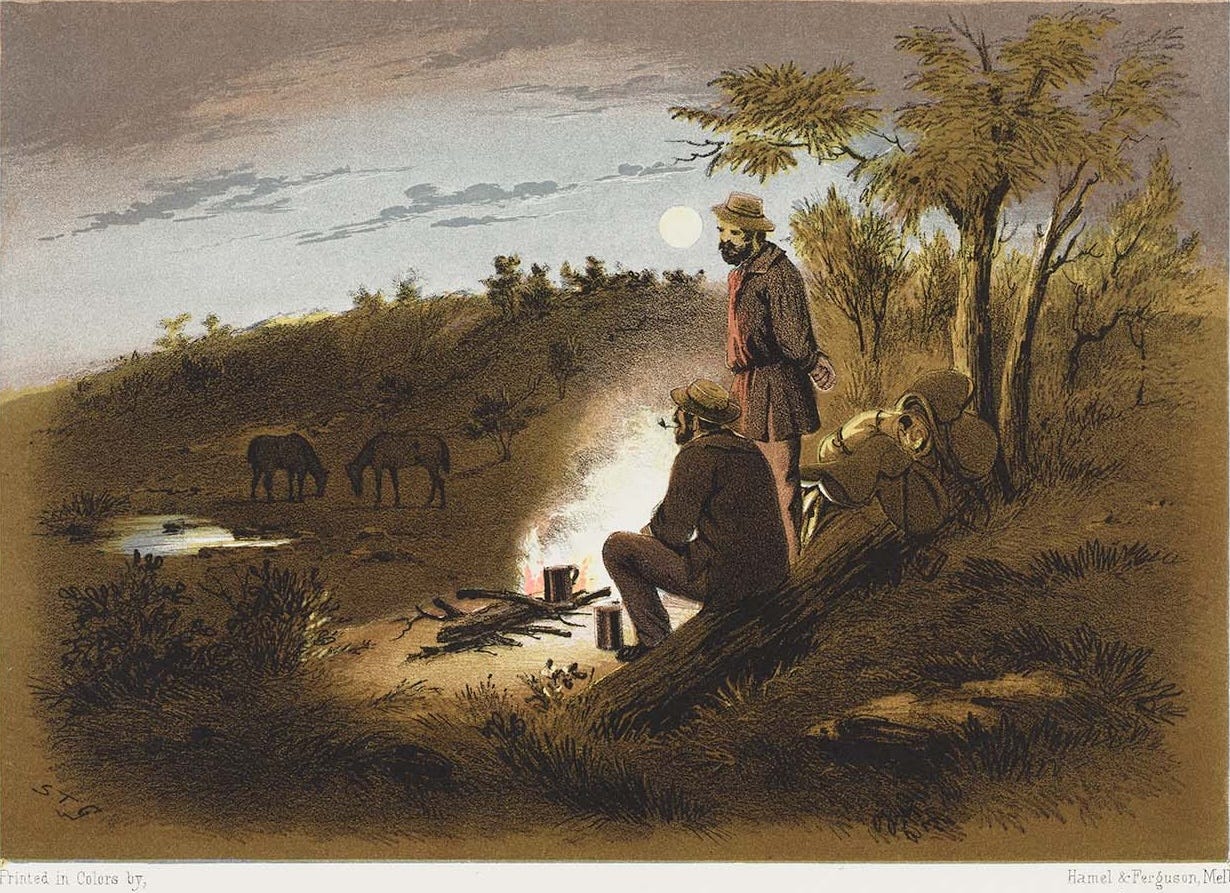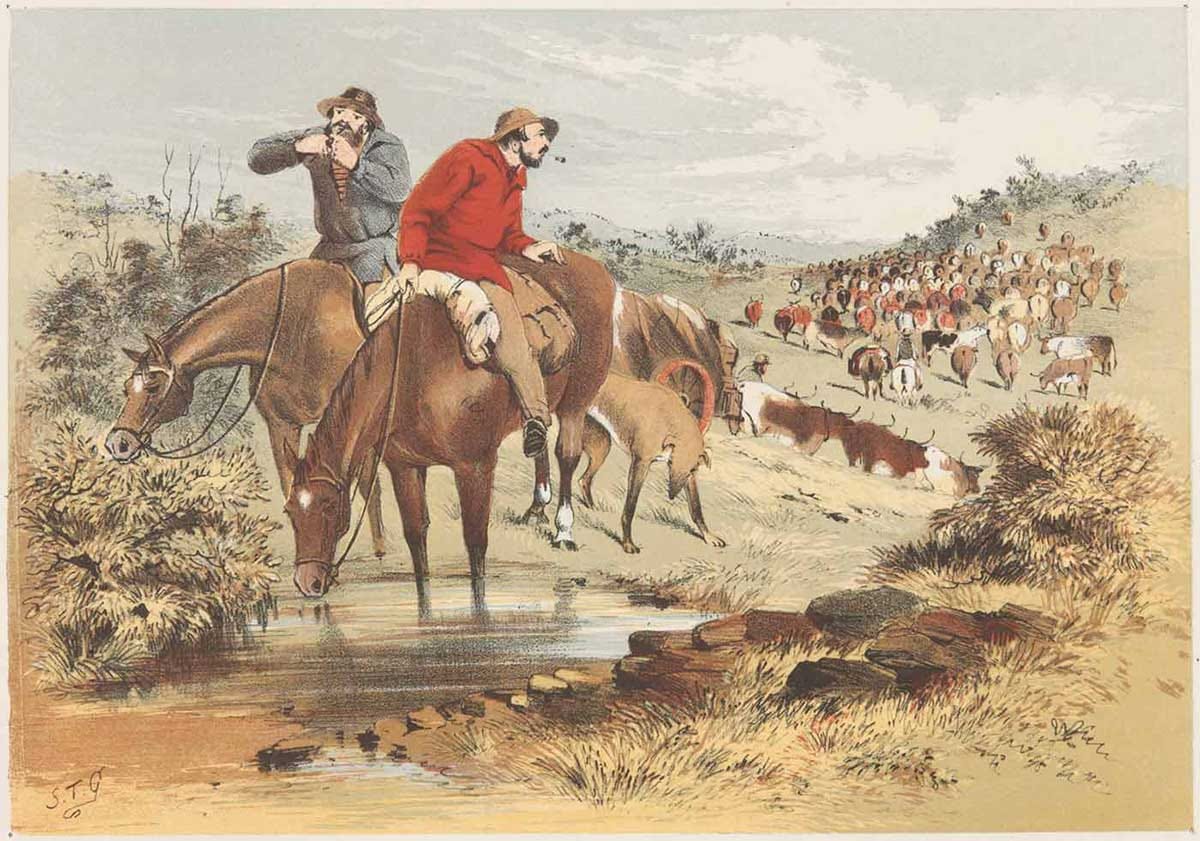Love of Homeland, Wattle Day, and the ANA Rangers
"You must be comfortable ranging across the Bush and feel at home camping among the waratah and the wattle."
Written by Elias Priestly, you can find all his previous articles on the Australian Natives Association website and find more of his content on 𝕏 @Aussie_EliasP
Is the homeland central to nationalism? Do we feel at home in Australia’s landscapes? How these two questions are answered will decide the direction of nationalism in this country and determine whether it will become true Australian Nationalism, or mere nationalism in Australia. So, what is the distinction between these two destinations and how is the Australian Natives’ Association working towards ensuring that it is Australian Nationalism that triumphs?
First the distinction. Many of us will already know that the word “nationalism” is derived from the Latin root “natio”, which refers to the biological relation of birth and is preserved in this meaning in the English words “natal” and “native”. To be a native, then, would simply mean to be born into a community of common blood. But if we end our analysis at this point, then we risk missing out on another key dimension of healthy nationalism - the importance of the homeland. True, it is possible for a nation to lack a homeland, like the Jewish diaspora did between the destruction of Israel by Rome and its resettlement under the Zionist project. This, however, is an abnormal situation that will twist the spirit of a people, rendering them rootless and parasitic in character. Having a homeland is vital.
On the other side, there is also the familiar risk of falling into some form of civic nationalism based on place alone. A familiar slogan criticising civic nationalism, summing up a very reasonable stance, is that civic nationalists believe in “magic dirt theory” - the idea that by virtue of simply stepping onto Australian soil a migrant becomes the same as a true Australian, born here to heritage white Australian parents. Clearly, the correct stance must chart a course between both extremes and accept the fundamental importance of both race and place.
Recently, a few people, some more prominent than others, have been stressing the idea that Australian identity, historically, is fundamentally British and that we should identify more with the old Empire than with any “parochial” or “kitsch” sense of uniquely Australian identity. I believe this reveals a deep sense of uprootedness that is typical of modern cosmopolitanism but certainly should not be typical of nationalism. There have been many declarations of the importance of “blood and honour” but let us not forget that all nationalists must respect blood and soil as well.
Every nation needs a homeland, and any nation that lacks a homeland must perish or degenerate into something unnatural. Our dirt may not be magic, but we still find ourselves standing on it, and we do not wish to stand anywhere else. The soil, the earth, forces us to be particular. The mind may think in universals and abstract terms, but our body must stand in a concrete place. Yes, without our blood we could not belong to our people, but it is the Australian soil that truly forces us to be Australian Nationalists and will accept nothing else. To deny this and speak of terraforming the Bush after the pattern of European forests or other such absurdities betrays a subtle sense that we of Europe’s old blood do not truly belong here. In a way, this attitude reinforces the propaganda of the “welcome to countries” that say that this continent will always be the land of the Aborigines, no matter what European landscapes may come to cover parts of its surface.
But perhaps these fellows would say that to love the Bush is treason to our European origins? To this, I’ll let Ian Mudie respond through his poem If This be Treason:
So this is treason, that a love of land
strengthen and circle in our hearts
through every hour of the day?
So this is treason, that our minds
should stir to none but native breeze,
that we should dream of unity
and our land’s high purpose,
that we should see
a national future
triumphant in our song,
that we should be
willing servants
of Australia’s dream?
If this be treason, then let every tree
fall to the axe, let all brave flowers
wither in traitorous disgrace.
If this be treason, then the very earth
offends against the state,
and every stick and stone
plots order’s overthrow,
assassination breeds
in every waratah, the wattle’s sabotage
broods on each golden hill.
If love of land a dastard treason be,
then black glows the sun and solid is the sea.
This is powerful stuff, and unfortunately it is now easier to forget than ever before as we have all been transitioned to some extent from the physical world to the virtual world of the internet and the screen. How can we approach our relationship to our land in real concrete terms? In the Australian Natives’ Association, we believe that remembering this centrality of the land to nationalism must be the purpose of Wattle Day, the start of the Australian Spring on the 1st of September. But it is not enough to simply think the “right” thoughts about nation and homeland. You must be comfortable ranging across the Bush and feel at home camping among the waratah and the wattle.
For this reason, among others, we in the ANA have been working on getting our outdoorsmanship and bushcraft wing, the Rangers, more formalised so that it can one day stand as a proud Australian institution in which future generations of men can develop traditional Australian virtues such as resource, independence, comradeship, and endurance. We must lean into and accept the heritage handed down to us from the Australian bushmen of the past, right from the first convicts who, on arriving in Van Diemen’s Land, felt they were entering a paradise in comparison to the squalid and cramped conditions of urban and industrial England.
Let us stand by the two pillar proposition of true Australian Nationalism and see no contradiction between them. An Australian is born into a European-descent, predominantly Anglo-Celtic, national community. An Australian truly loves and belongs to this land.





